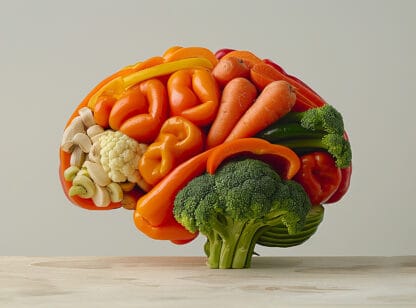In Traditional Chinese Medicine (TCM), the basics of good health are a moderate lifestyle; a broad spectrum of cooked and fresh food and spices; regular exercise; adequate rest and relaxation; and a good attitude. In Chinese culture, these strategies are part of everyday life and Chinese herbs are a part of every meal. You may already have many of these healthy–and healing–herbs right in your cupboard!
Cinnamon (Rou Gui) is one of the most common herbs in Chinese medicine. One of its constituents, cinnamaldehyde, is known for its positive effects on blood platelets. It is the fundamental chemical used to synthesize Warfarin,a blood thinning and anti-clotting medication. Cinnamon’s essential oils also qualify it as an “anti-microbial” food, and it has been studied for its ability to help stop the growth of bacteria as well as fungi, including the problematic yeast Candida. Because of this, cinnamon has been used when faced with the onset of a cold or flu, especially when mixed in a tea with fresh ginger. It also slows the rate at which the stomach empties after meals, thus helping reduce the rise in blood sugar after eating (important in pre-diabetic conditions.) Considering its blood thinning properties, be careful using cinnamon if you are currently taking blood thinning medications.
Turmeric (Huang Jing) is a main ingredient in curry and gives many other foods, like mustard, their bright yellow color. Turmeric has long been used as a powerful anti-inflammatory in both Chinese and Indian medicines. Clinical studies have substantiated that the active ingredient in the turmeric root, curcumin, exerts very powerful antioxidant effects and may provide an inexpensive, well-tolerated, and effective treatment for inflammatory bowel disease (IBD). It is able to neutralize free radicals that cause painful joint inflammation, and as such may help in treating diseases such as arthritis. Studies have linked the frequent use of turmeric to lower rates of breast, prostate, lung and colon cancer. It may be able to prevent the oxidation of cholesterol in the body that can lead to heart attack or stroke. Growing evidence suggests that turmeric may afford protection against neurodegenerative diseases as well, such as Alzheimer’s. Be sure to enhance store bought curry powders with turmeric as many have less than homemade curries do.
Cumin (xiao hui xiang) according to traditional Chinese medical theory is a warming herb used to treat disorders of low sex drive, impotence, nocturnal emission, premature ejaculation, menstrual pain, hernia, prostatitis and infertility. No wonder it’s the second most popular spice in the world, and is used in Middle Eastern, Indian, Chinese, North African, Southwestern and Mexican cuisine. So make sure to use plenty in your next chili!
Ginger (jiang) has a long tradition of being very effective in alleviating symptoms of gastrointestinal distress. It has also been shown to reduce nausea and vomiting during pregnancy. Ginger contains very potent anti-inflammatory compounds called gingerols. These substances are believed to explain why so many people with osteoarthritis or rheumatoid arthritis experience reductions in their pain levels and improvements in their mobility when they consume ginger regularly. Preliminary research indicates that gingerols may also inhibit the growth of human colorectal cancer cells and kill ovarian cancer cells by inducing apoptosis.
If you already have these spices in your cupboard, try to use them more often, and if you don’t, run out and get some for tasty, healthy eating!
Diane Sheppard is a licensed acupuncturist with a Ph.D. in Oriental Medicine. Dr. Sheppard trained in both China and the U.S and recently opened AcQPoint Wellness Center in La Quinta. 760-775-7900 www.AcQPoint.com













































Comments (0)